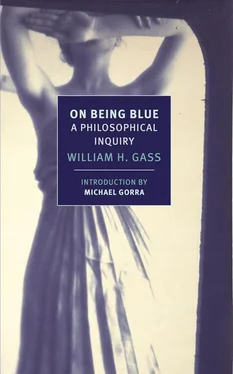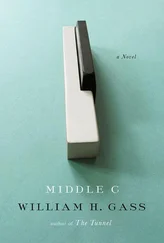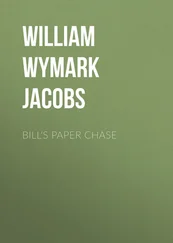Come. Walk through Blue Willow. There are pavilions, birds, green boughs like blue grapefruit, leaves like hanging lanterns, foliage like mascara’d eyes in midwink. I’m told it tells a story. And it may be the most popular pattern ever manufactured. Why? Stacks of them, fresh from Woolworth’s, fill my neighbor’s china closet. See the doves? When we twist the ring, we’re in. There are peacock feathers, sunflowers blue in the face, ferny streamers, fuzzy puffs, each fastened above the blue wiggle of a streaked trunk, the ground beneath like a foamy wave. There are nowhere any normal shapes. It is in fact a land afloat on milk-white water. There are blue boats out, and best of all there is a bridge where three sages cross, island to island, carrying, as one makes it out, a shepherd’s crook, a board or box, a string upon a handle. They know what it is: being blue; but who can feel how this world was once, counterfeiting has so changed it. Beyond the zagging fence a walk like a white shadow leads to wrinkled steps which have abruptly been unfolded from the portico of the great pagoda. We can see the inner windows, fanned and nowhere repetitious, then funny hatted houses in the distance, while the encircling calm of blue doodled borders — squares, scrolls, circles, diamonds, dots, checks, curls — drawn as if on the empty edge of the earth, keeps us lazily underneath the willow, by its water, the way the saucer which carries the pattern rests its cup.
She is still preparing salad at the sink.
Not very interesting.
What is fatso doing? reading the paper? My shoes squeak. I am too nervous to pay attention. What have they to say to one another?
Nothing.
Not very interesting.
I can’t help holding my breath and soon I’ve all that forceful air to hiss. Why won’t they quarrel, gossip, joke?
But suppose instead that suddenly I am scorched by a blue flame. I put my pain where the wound is and color where the flame is. Is this cleverness? My pain is not a detached affliction of the soul, and the philosopher, when he says the hurt’s in me, should mean it’s in my arm or elbow, because that’s where I am, and in that area of air around me I call home.
If I’ve been bound by wires, and if I am now being burned with matches struck by my wife or some former friend or, worse, my son, the sorrow this causes me is another perception, although of a different kind: it is the realization of my relation to the world or at least to a part of it. The sorrow contains the flame, the pain, the revengeful person, disappointment about the past, guilt, horror, anger, awe, grief with regard to the future, fear, shame, plans for retribution, apprehension, pity, disbelief, pain again, and then once again, pain. My emotions may be mistaken sometimes, but each is the integration of a very complex and continually changing set of relations only temporarily stabilized this time in a blinding run of tears.
Thus, just as seeing blue involves a comparison between longer and shorter wavelengths over the total visual field, being blue consists of a set of comparisons too. And just as it is necessary for me to have the right visual equipment, good light and easy distance, an appropriately unpreoccupied mind, et cetera, simply to see in the most ordinary way, so I must be able to receive reports from all of my senses, estimate the character of my mental calculations, like Schopenhauer’s genius, deepen toward the origin of every signal, shed prejudice, overcome any number of threatening neuroses, before my feelings, like my eyes, can be trusted; but this only means that feelings are much more complex than sensations by themselves (though by themselves they do not exist — what does?), and consequently that more — much more — can go wrong with them.
Furthermore, like those logical layers I touched upon earlier (blue the color, ‘blue’ the word, and Blue the Platonic Idea), our feelings have levels, and many are metapathetic. These logically remoter emotions are soon equal with the others (my desire for another man’s wife commingles with the disgust I feel at my taste for flaccid boobs), and this new mix is felt afresh as still another feeling which, when the complete self is in fine fettle, with incredible immediacy and ease, disposes qualities correctly over the embattled Europe of my experience much as we crayoned countries in sixth-grade History in order to learn who had won what in the First World War: cleavage for the eye, martini on the tongue, heat to the head, aching in the belly, swelling within the prick, envy of the husband’s proprietary arm now wrapped indecently under the heavy fall of her breasts, and contempt from the critical self shaken out like salt on everything. None of these inclusive responses is purely public, purely private; each of them is cognitive, the sum of whatever we know and are at any moment. We experience the world, balanced on our noses like the ball it is, turn securely through the thunder of our own applause.
But she is still preparing salad at the sink.
Why doesn’t she slip out of those blue jeans and roll upon the floor in an agony of desire?
Because she is preparing salad at the sink.
And now I notice that there is an important element missing from my perception of her. Invisible, I can’t see the faint fuzz of my cheeks or the framing fringe of my hair. Suppose, as I had wished a moment ago, I were inaudible. I should find, very quickly, how much I need to hear the sound of my own breathing. To hear the scene, but not myself: how odd… how horrible… how whimsical… how unnerving. Now I understand what a difference any kind of distance makes. How could I taste her lips and not taste my own, or run my hand upon her arm without its fingers being felt? Do I wish us both odorless in bed? (Fat persons, incidentally, are advised to wear blue. It will squeeze them in, as Kandinsky said, better than a corset. Have a plum.) The naked little girlfriend in the photo could not hear me, see me, either, and the woman I want undressed right now, this kitchen with its silly running water which I wish removed by lightning van, hubbie and paper wanded away to Nevernever Land, are stubbornly indifferent photographs which stare behind me like the polar bears.
Meanwhile I wait, releasing my breath beneath my shirt.
And meanwhile she continues to prepare salad at the sink.
Then it is not blue I see but myself seeing blue.
Perhaps I should come back at bedtime to watch them bathe in the dusk-blue light of the set, chew potato chips and other crunchies as they slowly sink… sag… settle like their pillows into grateful sleep.
No. I should go to a play. The characters will enter with their entrails already showing. No salads. Sinks. No squeaks. Whole lives will be compressed into a gesture… and then another. Or I should slip into a novel. My invisibility’s complete. Unless I get caught in something like a Warhol movie, there won’t be those long stretches watching people sleep. I can observe poor Portnoy beat his meat. And in fiction I can rub a ring which Gyges would have traded his to wear: one which painlessly permits a peek in any consciousness I care to.
The push toward blue in fiction has persisted from the beginning. It was immediately recognized that fiction could carry us, as the bride over the threshold, into domesticity. Suddenly there are sinks and sofas, hats and dresses, table manners. Intimacy. The movies have relieved this pressure somewhat, but writers remain unduly responsive to it. As readers, that’s what we want: the penetration of privacy. We want to see under the skirt. And while we are peering at the page, though invisible to Prudence who is scratching her thigh, we are not invisible in fact — again an improvement over the ring which costs us the sight of ourselves. Words are one-way mirrors, and we can safely breathe, hoot, holler all we like to assure ourselves of our existence, and never once disturb Prudence easing her itch.
Читать дальше












